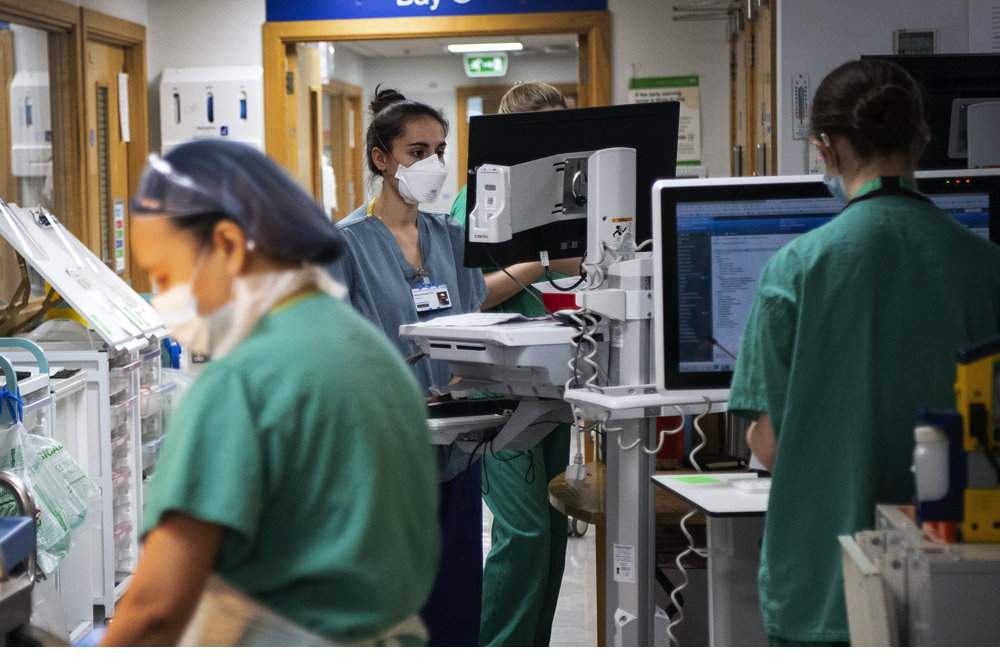Welsh Government faces rewed criticism over latest NHS performance stats

The Welsh Government is facing renewed criticism for following the publication of the latest NHS Wales statistics.
The latest data on waiting times confirms that there were around 582,000 individual patients on treatment waiting lists in Wales at the end of April 2023. This was an increase of around 6,000 patients from March – the second successive rise.
The numbers waiting for more than a year also rose for the first time in eight months and the reduction in those waiting two years has stalled.
The government’s planned care recovery plan established a target to eliminate two year waits in most specialties by March 2023. The target was not met in March and in April there were still a further 21 specialties with pathways waiting more than two years accounting for 4,500 pathways.
Ambulance response times and A&E waiting times both improved in the latest report.
Inhuman
Welsh Conservative Shadow Health Minister, Russell George MS said: “In the last month, despite repeated promises by the Labour Health Minister that inhuman 2-year waits for treatment would be eliminated by March, these unacceptable waiting times are still a unique phenomenon in our Welsh NHS.
“The numbers have stagnated, with the lowest monthly reduction in 2-year waits for a year. I am disappointed to see so little progress being made to bring relief to patients being left in limbo for years. In fact, overall numbers for patients waiting for treatment are up over 10,000, meaning nearly 1-in-4 are still on a waiting list here in Wales.
“It can’t be right that in England that 2-year waits have been virtually eliminated and that there are nearly three times as many people waiting two years in Wales than there are people waiting 18 months in England, despite England having 18 times our population.
“The Labour-run Welsh NHS is in dire straits, any progress the Labour Health Minister could have claimed has come to a screeching halt. It’s no wonder, given Welsh Conservative calls to rapidly roll out surgical hubs, as was done in England to get on top of this backlog, have fallen on deaf ears because Labour like to do things differently for the sake of it.”
Grid-lock
Responding on behalf of Plaid Cymru, Peredur Owen Griffiths MS, said: “Missed targets, and thousands more patients added to waiting lists, this is a government that has desperately failed to get to grips with the grid-lock in our NHS.
“It’s not an overstatement to say that this crisis is affecting us all, and we need to see that Welsh Government has a plan to set our health and care services on to a better path. This starts with listening to the needs of our hard-working health and care staff, many of whom have once again taken to the picket lines in order to get their voices heard – and too many more have already left the sector.
“I don’t think it’s impossible for Welsh Government to come up with a plan that delivers better healthcare than we’re currently seeing – indeed, Plaid Cymru’s five point plan from January this year would have formed a great starting point, if Labour hadn’t have voted it down!
“But when Welsh Government can’t even manage to their own targets, it’s hard to have any confidence in their ability to fix these issues – we need more from this Labour government, and we need it soon.”
‘High quality care’
NHS Wales Chief Executive Judith Paget said: “Our NHS continues to see historically high levels of demand, but our dedicated, hard-working staff continue to provide high quality care every day.
“I am pleased to see continued improvement in timeliness of ambulance response – the best in a year – and further improvement in the performance of emergency departments despite continued pressure.
“The average number of daily attendances at emergency care facilities was the second highest on record in May, with nearly 100,000 attendances, but performance improved against the four-hour target. The average (median) time spent in emergency departments was just over 2 hours 30 minutes last month.
“Despite an increase in the average number of immediately life-threatening calls to the ambulance service each day in May, the proportion responded to in eight minutes increased by 1.4 percentage points to 54.4%. This was the best performance for a year, while over 85% of red calls saw a response on scene within 15 minutes.
“While I recognise much more needs to be done it’s encouraging to see improvements starting to come through a year after the launch of our Six Goals for Urgent and Emergency Care Programme.
“It’s disappointing to see the overall waiting list increase for the second month in a row, after falling for five consecutive months. But two-year waits decreased for the thirteenth consecutive month and the Health Minister has asked health boards to redouble efforts to tackle the longest waits.
“This must be seen in the context of continued high demand, with a significant increase in referrals since the COVID-19 pandemic. And we always expect less planned care activity during the Easter holidays.
“Activity in Primary Care also continues to increase, with hundreds of thousands of patients being seen in General Practices across Wales each week.”
Support our Nation today
For the price of a cup of coffee a month you can help us create an independent, not-for-profit, national news service for the people of Wales, by the people of Wales.




